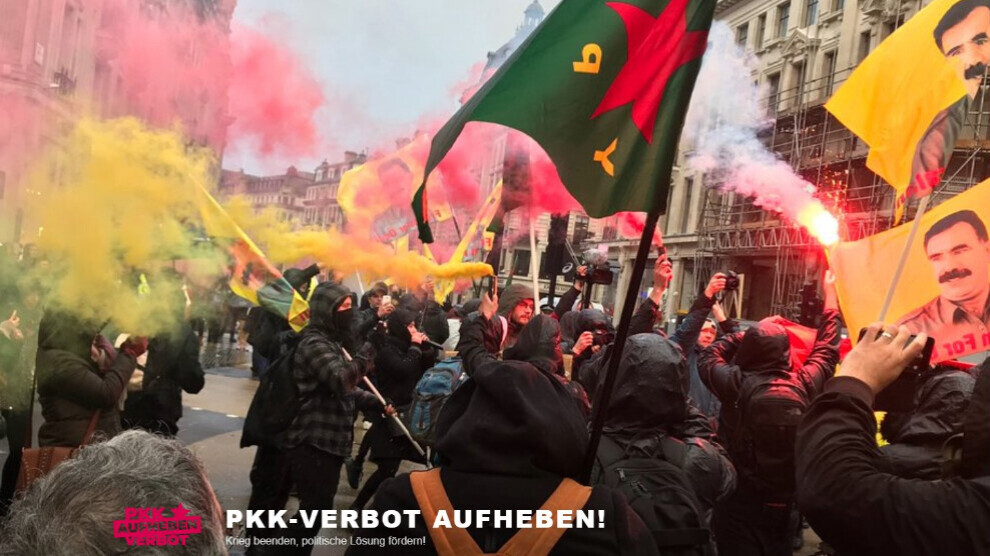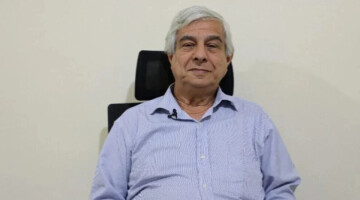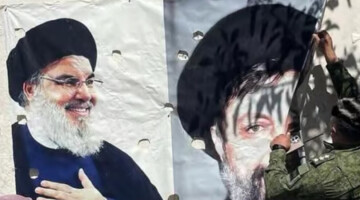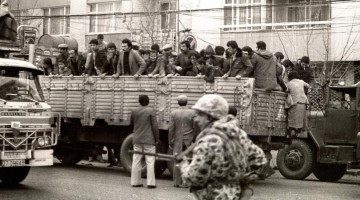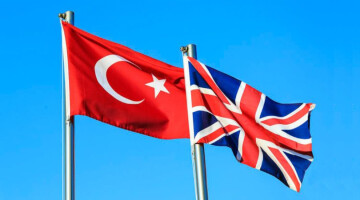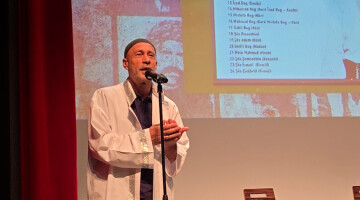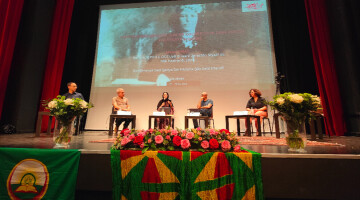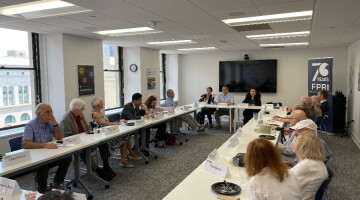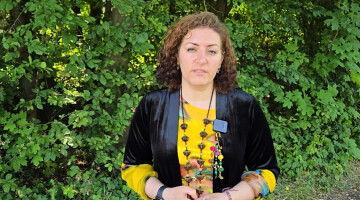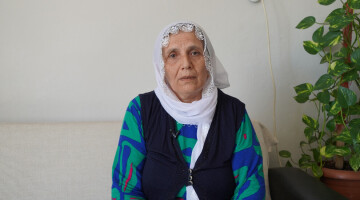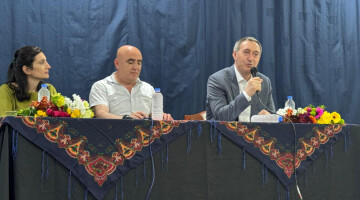The PKK ban, which was introduced on November 26, 1993 by the German government under Helmut Kohl, is entering its 28th year this year.
Unlike previous years, public campaigns are carried out in a more organized way this year to lift the PKK ban, which has led to the marginalization, crackdown and prison sentences against 1.5 million Kurds who live in Germany.
54 organizations from Kurdish, German and other migrant groups came together and established the ‘Lift PKK Ban’ Initiative. The initiative's official website, "https://verbot-aufheben.com" (lift the ban), was blocked by the German security forces last October.
When the digital media accounts of the initiative were blocked by an unlawful decision along with its website, the initiative started to carry out its activities via https://verbotaufheben.noblogs.org
BAN DENOUNCED IN 13 CITIES
In its press releases and social media accounts, the ‘Lift PKK Ban’ Initiative emphasizes that the political, cultural, physical and psychological consequences of the 28-year-long ban against the Kurds have reached unprecedented levels. The Initiative also held a series of panels for the German public throughout November.
The Initiative organized 6 events in Berlin, including panels in Bonn, Dresden, Hannover, Magdeburg, Kassel, Lüneburg, Aachen, Göttingen, Frankfurt, Halle, Bremen and Hamburg.
Lawyers, victims and human rights defenders attended the panels where organizers explained how the 28-year-old ban has caused damage to the Kurdish people and German democracy.
MASSIVE RALLY IN BERLIN ON SATURDAY
On Saturday, November 27, the ‘Lift PKK Ban’ Initiative is organizing a march and rally in Berlin. The mass demonstration, supported by anti-fascist, anti-war, left-wing and feminist movements, is organized under the motto “Lift the PKK ban / End the war, demand a political solution”.
The march will start from Hermannplatz square at 12:00.
The executives of the initiative told ANF that all the preparations have been completed and called on everyone who is in favour of democracy and freedom, particularly the people of Kurdistan, to come to Berlin on Saturday.
The initiative executives pointed out that they will urge newly established government in Germany to lift the PKK ban which means support for the war and decimation policies of the Turkish state against the Kurdish people. They added that “it is time to throw the 1993 ban into the dustbin of history.”
HOW WAS THE PKK BAN PREPARED?
Even though the Kurdistan Workers' Party (PKK) had no official activities in Germany, the decision to put a ban on the PKK came to the fore when Turkish Prime Minister Tansu Çiller paid a visit to the Helmut Kohl government in Bonn, former capital city, on September 20, 1993. Çiller also met with US President Clinton at the White House on October 12. She wanted to introduce a plan to purge the Kurdish freedom movement in the international arena.
After the talks between Ankara-Washington-Bonn, an annual internal affairs conference, attended by the interior ministers of 16 states in Germany, was held in the town of Oybin on November 22, 1993. The main issue of the conference was whether to ban the PKK or not.
Federal Minister of the Interior, Manfred Kanther, who was later involved in a donation scandal within his party, presented a 53-page draft bill that advocated banning the PKK during the conference.
Some state ministers disagreed with Kanther during the debates, and the final decision came out two days later.
On 25 November, NRW State Interior Minister Schnoor told reporters that “Kanther wanted it and we banned the PKK”. Hamburg's interior affairs senator Wrocklage answered journalists, saying “Ask Kanther about the ban.”
Following the ban, the German state officials became the most important supporters of the official crackdown on the Kurdish freedom movement, which has led to the closure of dozens of Kurdish organizations, including associations, publishing houses and news agencies.
However, the ban included nothing to address the war in Kurdistan, the reasons for the violence, the burning of villages and massacres by the Turkish army.

